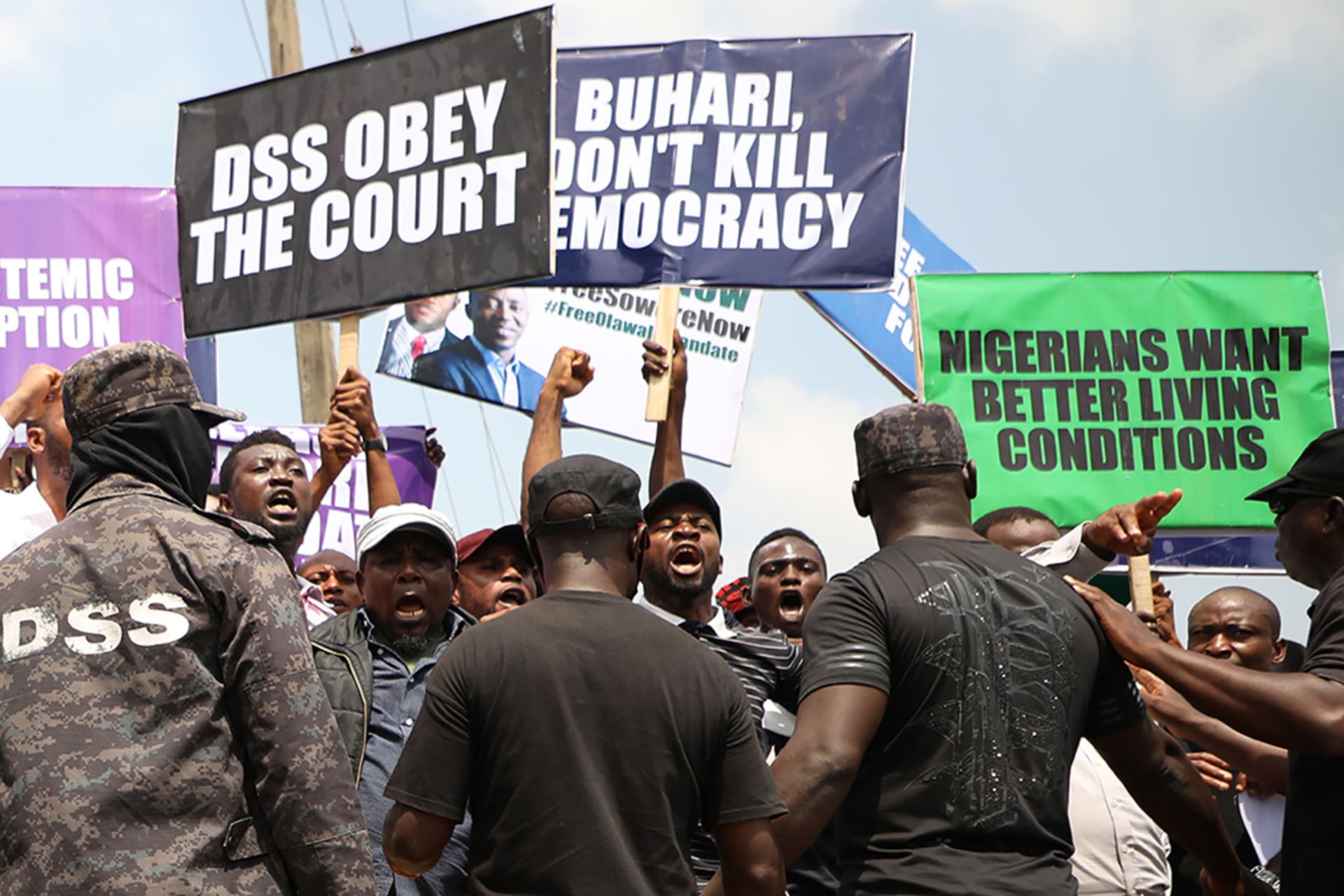Nigerian Police Use Live Ammunition Against Peaceful Demonstrators

By experts and staff
- Published
By
- John CampbellRalph Bunche Senior Fellow for Africa Policy Studies
- Jack McCaslinResearch Associate, Africa Policy
Nigerian media is reporting that on November 12, the Nigerian police fired live bullets to disperse those protesting the continued imprisonment of Nigerian journalist Omeyele Sowore. The media describes the protestors as conducting a “sit-in” at the offices of the Department of State Services (DSS), though it is not clear whether the protestors were inside or outside the compound. There are no reports that the demonstrators were violent or that protestors were killed. But this is yet another troubling incident involving the security services, peaceful protestors, and the rule of law.
This summer, clashes in Abuja between security services and Shias, an Islamic religious minority, led to an estimated four deaths. They were protesting the imprisonment, since 2015, of their ostensible leader, Sheikh Ibrahim el-Zakzaky. Representatives of the Islamic Movement of Nigeria (IMN), which is a Shia group, alleged that they were attacked by the police after protesting peacefully. Previously, in October 2018, dozens of IMN members protesting Zakzaky’s imprisonment were killed following clashes with security services in Abuja. Zakazaky’s imprisonment is based on a 2015 clash of his supporters and a military convoy, which led to the deaths of an estimated three hundred Shias. Like Sowore, Zakzaky’s imprisonment rests on dubious legal grounds (he, too, has been ordered released by the courts) and is enmeshed in the extra-judicial activities of the security services.
The apparent readiness of the security services to use violence against peaceful protestors reflects poor police training and the use of the military in lieu of the police. Numbering only about 360,000 in a country with more than 200 million people, the police are underpaid, stretched thin, and often forced to fend for themselves. Morale is likely to be poor.
Sowore was the presidential candidate for the Africa Action Congress in the 2019 elections. He was ostensibly arrested over his leadership of the #RevolutionNow political protest, though he is also the founder and publisher of Sahara Reporters, a well-regarded, New York-based news outlet that has reported on Nigerian government corruption. The DSS claims his protests are treasonous, but such charges appear wildly overblown. (For perspective, the government has declared the IMN terrorists.) Twice the courts have ordered his release on bail, and twice DSS has retained custody of him. This episode appears to violate freedom of speech, freedom of assembly, and the law. Together, they are antithetical to President Muhammadu Buhari’s assertion that his administration believes in freedom, tolerance, and the rule of law.
Since the colonial period, there have been episodes in which the security services have operated without reference to the law or to civilian control. Notably, there was the extra-judicial murder of Muhammed Yusuf, leader of Boko Haram, while he was in police custody in 2009. That murder played a central role in Boko Haram’s ongoing war with the Nigerian state. Security service abuses are often cited as assisting Boko Haram recruitment. Similarly, there have been repeated episodes of security service violence against Shia protestors. The government has already taken some important first steps toward reform of the judicial system, but reigning in, training, and funding the security services should be a top priority.